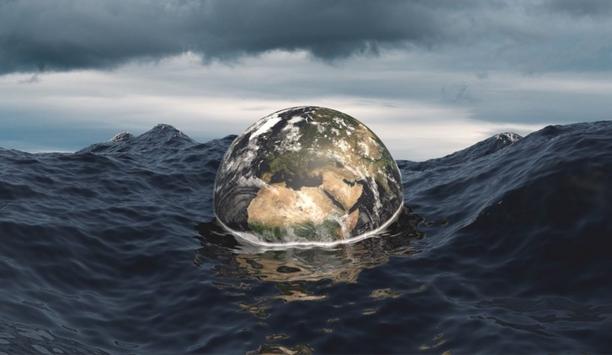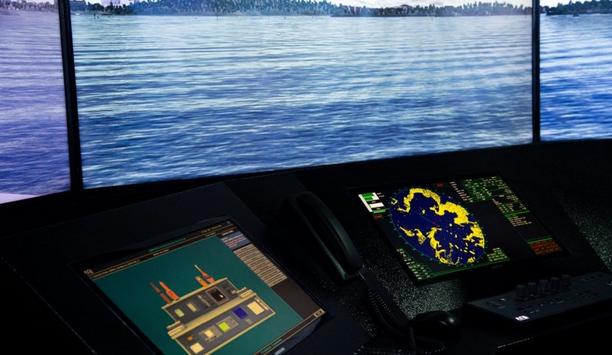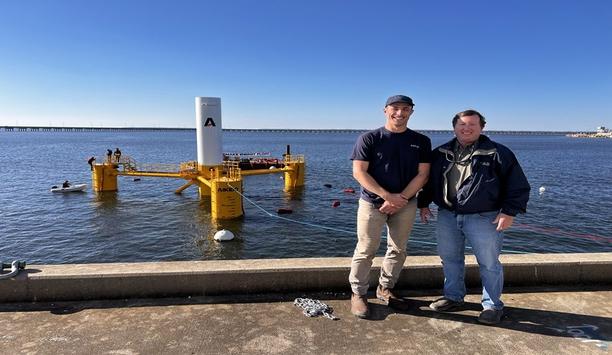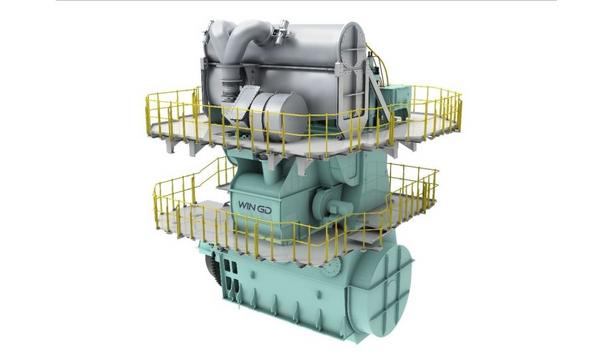American Bureau of Shipping (ABS) News
In recognition of its exceptional achievement in maintaining a safe work environment, the National Safety Council (NSC) presented ABS with two safety awards. The NSC is a globally recognised nonprofit organisation committed to eliminating leading causes of preventable death and injury in the workplace and on roadways. Their awards program recognises organisations and individuals who have made significant contributions to upholding the safety of their workplaces and communities. ABS’ acco...
ABS Consulting has published an insightful new paper highlighting how aligning cybersecurity initiatives with key operational readiness principles enables organisations to develop a comprehensive strategy that enhances both operational resilience and guest safety. Maritime cybersecurity A Strategic Approach for the Cruise Industry, is the second in an industry-pioneering series on maritime cybersecurity that builds on ABS Consulting’s work supporting cruise clients’ safety co...
Increasing demand from shipowners for ABS services in Singapore has prompted ABS to invest in an expanded regional head office housing industry-pioneering research and development capabilities. The opening ceremony was prefaced by a traditional lion dance and reception, which saw ABS Chairman and CEO Christopher J. Wiernicki cut the ribbon on a facility that is home to the ABS Singapore Innovation and Research Centre, the ABS Global Electrification Centre and one of five ABS Global Sustain...
American Bureau of Shipping (ABS) and the Singapore Institute of Technology (SIT) signed a memorandum of understanding (MOU) at Singapore Maritime Week to advance innovations in applied research in maritime technology and enhance talent development within the global maritime and offshore industries. The collaboration advances applied research in next-generation vessel system design, including ship power simulations with hardware-in-the-loop, shore-to-ship charging technologies, and augmented an...
ABS Wavesight™, the ABS-affiliated Software-as-a-Service company, proudly hosted its Vision and Value Summit in Singapore. The event brought together users of ABS Wavesight software products, industry stakeholders, and regional experts for a dynamic day of collaboration, innovation, and forward-thinking discussions. ABS Wavesight’s commitment Attendees engaged in interactive sessions focused on addressing critical issues The event served as a platform for users and other industry...
The Maritime and Port Authority of Singapore (MPA) and the American Bureau of Shipping (ABS) have renewed a multi-year Memorandum of Understanding (MOU) to strengthen collaboration in research and development, talent development, workforce upskilling, support for startup maritime businesses, and regulatory alignment. This renewal, signed now, marks a comprehensive and future-oriented collaboration that continues to strengthen Singapore’s role as a global maritime hub while advancing ABS&r...
ABS, in collaboration with pioneering players in the maritime industry, has joined an ambitious initiative from the Massachusetts Institute of Technology (MIT) to tackle challenges facing global shipping. The MIT Maritime Consortium unites academia and industry to support the development of cutting-edge technologies that aim to transform the sector, including alternative fuel and new nuclear technologies, data-powered strategies for efficient operations and decision making, autonomy and cyberse...
“The IMO really has to step up now if we are to deliver on the pace and scale of the change required. A lot of this comes down to the question of how we address the significant price differential between fossil and alternative fuels. The IMO holds the keys to all of this, and the time for action is now. Whether we as an industry can make 2050 rests largely with the IMO and how it performs in the coming months.” That was the message to the industry from ABS Chairman and CEO Christoph...
ABS and Pacific International Lines (PIL) have signed a Memorandum of Understanding (MOU) at Singapore Maritime Week that establishes a framework to collaborate on projects related to maritime technology, sustainability and safety management systems. “To make meaningful progress in this era of rapid change, we need strategic industry collaborations like this one with PIL. We look forward to capitalising on our unique strengths and capabilities in maritime compliance and cutting-edge techn...
Ammonia is gaining traction as a future fuel in the maritime industry, primarily due to its potential to significantly reduce greenhouse gas emissions. A key driver for ammonia's interest is that it can be carbon-free when combusted, which aligns with the maritime industry's increasing pressure to meet emissions regulations. However, most ammonia production currently relies on fossil fuels. Transitioning to "green ammonia" production is crucial for sustainability. If "green ammonia" is produced...
ABS and Monohakobi Technology Institute (MTI) have successfully completed a landmark collaboration advancing the development of fully autonomous vessels. The Action Planning and Execution System (APExS-auto) maritime autonomy framework from MTI received approval in principle from ABS. The project utilised the System-Theoretic Process Analysis (STPA) method, an innovative hazard analysis technique. System-Theoretic Process Analysis (STPA) method “ABS is leading the industry in forward-th...
Maritime and offshore energy pioneers from Brazil, Argentina, Chile and throughout South America came together for the first meeting of the ABS South America Regional Committee. ABS is the pioneering classification society among South American and Brazilian shipowners and is the recognised class-of-choice for floating production storage and offloading (FPSO) units in the region. Maritime and offshore industries Kroustallis reported that ABS has continued to hold the number one position in glo...
Uncertainty about the scale and nature of the IMO’s proposed carbon levy is holding back investment in shipping. That was the message from Christopher J. Wiernicki, ABS Chairman and CEO, during an appearance at the CERAWeek energy conference. Lack of carbon pricing “A carbon levy is a wild card. It will all depend on how it is implemented and enforced. There’s a huge question mark over whether this will deliver for the industry and there is much still to be decided,” s...
ABS issued a Type Approval for IACS UR E27 cyber resilience requirements to Hanwha Systems for its cybersecurity solution, SecuAider®. Hanwha Systems’ SecuAider® is a software solution that offers protection to a vessel’s data and networks from advanced cyberattacks, such as ransomware and malware. Range of digitally enabled systems ABS E27 credential is part of ABS Cyber Resilience Program that evaluates a digitally enabled system The ABS E27 certification is part of the...
The ABS-classed Liza Unity has become the first FPSO in the world to receive the SUSTAIN-2 notation from ABS. The notation is the next level in the vessel sustainability program developed by ABS to help fleets meet the environmental and human elements requirements contained in the strategic Sustainable Development Goals (SDGs) from the United Nations. Usage of low-carbon fuels SUSTAIN-2 recognises additional attributes such as the usage of low-carbon fuels Liza Unity was the first...
The Dynamic Positioning Digital Survey (DPDS) from Kongsberg Marine has received approval in principle (AIP) from ABS. The DPDS application from Kongsberg continuously gathers data from a vessel’s dynamic positioning (DP) system, allowing annual DP surveys to move from in-person assessments on the vessel in a fixed timeframe to remote analysis onshore across a wider, more flexible timeframe. Evolution of digital solutions Per Kongsberg, the DPDS app contributes to reduced vessel downtim...
The impact of carbon capture and digital technologies as well as IMO Mid-Term Measures and FuelEU on the cost of compliance led the discussion at the ABS Middle East Regional Committee Meeting. The committee welcomed Khalid Alhammad, President of Bahri Ship Management, who started his term as chairman of the ABS Middle East Regional Committee. Environmental sustainability and excellence Alhammad said: “This forum has an important role in fostering collaboration among industry pione...
ABS approved the Front-End Engineering Design (FEED) documents for a deep water floating offshore wind platform design from ECO TLP, Inc. and MOCEAN-Offshore BV. The unique design supports the largest wind turbines on the market and utilises slip-formed cylindrical concrete hulls and a variety of anchor types. Challenges to renewable energy ABS completed design reviews based on class and supporting offshore standards When combined with a hybrid spar tension-leg mooring system, the unit has a...
The European Maritime Safety Agency (EMSA) has published the final two reports in a series of six, focused on alternative fuels and decarbonisation technologies. The reports were contracted from a consortium led by ABS, which includes CE Delft, Arcsilea and Texas A&M University. A 360-degree analysis of nuclear power and synthetic fuels, specifically the renewable e-fuels of e-diesel, e-methane and e-methanol, complete a project for EMSA designed to support the European Commission, the Memb...
New nuclear reactor technology represents a once-in-a-generation opportunity for U.S. industrial policy. Vessels propelled by advanced small modular reactors (SMR) could act as a catalyst for the revitalisation of U.S. shipbuilding. That is the view of ABS Chairman and CEO Christopher J. Wiernicki, who believes the next step is the development of a marinised SMR demonstrator. New industrial policy “It is a key transformational technology. It changes the commercial model, the economics o...
More than almost any trend, decarbonisation is driving the future of maritime. That reality alone makes decarbonisation the perfect topic for our first-ever Expert Panel Roundtable column. Traditional maritime fuels, like heavy fuel oil, release harmful pollutants that contribute to air pollution and have adverse health effects. We have to do better, and discussions in the maritime industry centre on which combination of alternative fuels and other technologies can solve the shorter- and longer-...
A pioneering nuclear propelled containership designed by HD Korea Shipbuilding & Offshore Engineering (HD KSOE) has received approval in principle from ABS. The groundbreaking design for a 15k TEU vessel uses a propulsion system comprised of a molten salt reactor (MSR) for heat and a supercritical carbon dioxide (SCO2) system for power generation. Net zero by 2050 ABS completed design reviews based on class requirements. ABS published the industry’s first comprehensive requirements...
“New nuclear technology is a global decarbonisation solution and a commercial shipping disruptor. There is no net zero by 2050 without nuclear.” That was the view from ABS Chairman and CEO Christopher J. Wiernicki, speaking at the Core Power New Nuclear for Maritime Houston Summit. Operation of vessels “New nuclear is a transformational technology. It disrupts the commercial model, the economics of shipping, as well as the operation of vessels and of course their d...
ABS has stated the maturity of Aikido’s innovative floating wind platform design, the latest stage in new technology qualification. As part of the process, ABS witnessed a successful upending demonstration of the Aikido One unit, a 1:4-scale floating wind platform. The design can accelerate deployment and reduce costs for the rapidly growing offshore wind industry. Collapsed transportation configuration The test exhibited the platform’s ability to quickly deploy from its collapsed...
The only on-engine NOx reduction solution for marine two-stroke engines, designed by Swiss marine power company WinGD, will be deployed for the first time on commercial engines after securing type approval. The integrated Selective Catalytic Reduction (iSCR) solution was tested at Mitsui E&S DU (MESDU) Co’s factory in Aioi, Japan, where three WinGD 5X52-S2.0 engines are being built for bulk carriers under construction at a Japanese shipyard. Iteration features The type approval foll...
A new design for an ammonia floating production storage and offloading (FPSO) unit that features onboard carbon capture technology for blue ammonia production has received approval in principle (AIP) from ABS. The design comes from MODEC, Inc. (MODEC), in collaboration with Toyo Engineering Corporation (TOYO). ABS completed design reviews based on class and statutory requirements. Emissions of offshore operations It is produced by combining hydrogen, which is derived as a byproduct of carbon...
ABS is investing in the expansion of its services to build on its position and ensure it is well-placed to meet the growing needs of the marine and offshore industries. That was the message for maritime pioneers from across the region at the annual ABS Southeast Asia Regional Committee meeting. “Our safety-driven mission continues to serve us well, and we are building on this strong foundation by investing in widening and deepening the scope of our class services,” said Christo...
HD Korea Shipbuilding & Offshore Engineering (HD KSOE) has received ABS approval in principle (AIP) for a tank design that enables large-scale hydrogen transport and storage. Vacuum insulation system HD KSOE's vacuum insulation system is designed to reduce the time required to create a vacuum in large tanks, which is essential for transportation. The new technology allows maintaining a vacuum state at –253℃, which KSOE says enables safer and loss-free transport of large quantities o...
The Maritime Technologies Forum (MTF) has released a new report offering key recommendations to consider as the industry looks to adopt onboard carbon capture and storage (OCCS) technology. The report highlights the regulatory and safety considerations for the adoption of onboard carbon capture while also recognising the importance of developing a secure and scalable downstream carbon value chain and increasing carbon capture system cost-effectiveness. Key recommendations Based on the finding...
ABS and Akselos have signed a Memorandum of Understanding (MoU) to advance engineering and certification processes for floating offshore wind projects. The companies signed a Memorandum of Understanding (MoU) to collaborate on solutions aimed at optimising design, reducing costs, and improving efficiency for the floating wind sector globally. Akselos' simulation technology The alliance utilises ABS's expertise in offshore credential and type with Akselos' technology The collaborati...


















